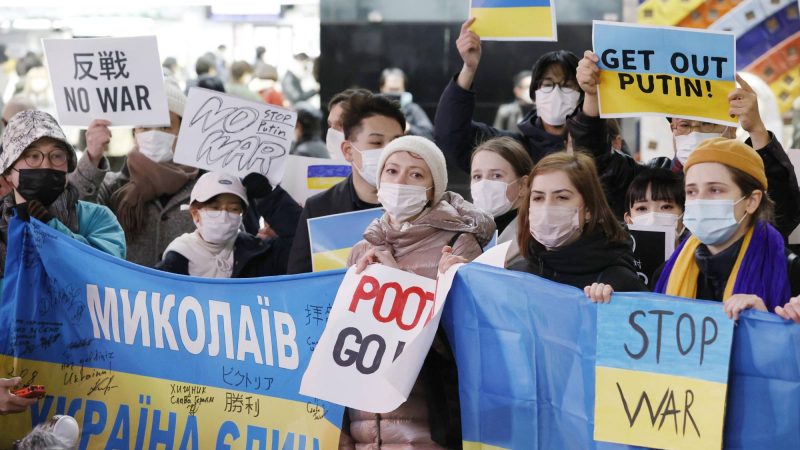Rape in war is an act of violence that can be as destructive as bullets and bombs, yet goes unreported, is under prosecuted, and where the root causes remain unchallenged.

Amelia Womack is deputy leader of the Green Party
Rape in war is an act of violence that can be as destructive as bullets and bombs, yet goes unreported, is under prosecuted, and where the root causes remain unchallenged.
As soon as war was declared, I feared for Ukrainian women, both those who are fleeing and those who remain in the country. Although unverified, Ukraine’s Foreign Minister has accused Vladimir Putin’s forces of committing numerous rapes in Ukrainian cities.
History books tell us plenty about the impacts of war, but until recently, few have described the experiences of women who have faced rape as a weapon of war.
Rape was only described as a war crime by the UN in 1995 and the first prosecution didn’t occur until 1998, at the International Criminal Tribunal for Rwanda. The International Criminal Court also has a sorry record on this. Created in 2002, it has secured only one conviction for sexual slavery and rape, in the 2019 case of a warlord from the Democratic Republic of Congo, a country where victims as young as four months and as old as 86 have been identified.
Rape is used to inflict terror and humiliation. In Bosnia, some women chose to jump out of windows to end their lives rather than to continue to be subjected to nightly gang rape. More than half of the 90 war criminals convicted by the tribunal for the former Yugoslavia were found guilty of sexual violence, but the tribunal received reports of more than 20,000 rapes.
And it’s not just adult women. A staggering 72 million children – 17% of the 426 million children living in conflict areas globally – are living near armed groups that perpetrate sexual violence against them, a report from Save the Children reveals.
Even away from the front line, women and children are not safe. Refugee women are often subjected to violence in refugee camps by the very people who are supposed to protect them. There are even reports of UN Peacekeeprs involved in child rape.
Silence is a major issue when it comes to abuse and rape, and the fact that we have never historically exposed the stats and real life stories of rape during war is part of that cycle. When women give testimony, this can reawaken the trauma, which is a further reason for the silence around rape.
Women need justice and action to tackle the grotesque reality facing so many in situations of war and conflict.
Firstly, it is essential that we not only focus on victims and survivors of rape, but also turn the viewfinder toward the perpetrators so we say, “he raped her” rather than “she was raped.”
Secondly, we need to increase conviction rates and end impunity for perpetrators. It is therefore vital that Putin and his military forces are held accountable for war crimes, as Gordon Brown has urged – including for crimes of rape and abuse. If combatants and their masters come to realise they will be called to account and punished for their actions this can help prevent future sexual crimes from being committed.
Finally, we need to increase the number of women involved in senior political positions, foreign policy and diplomacy – areas that have always been dominated by men. There are some great examples of women in senior positions who have brought a different perspective to powerful roles and an approach that prioritises greater equality.
Michelle Bachelet, the UN High Rapporteur on Human Rights and former president of Chile, has prioritised ending violence against women. While Mary Robinson, the former UN High Commissioner for Human Rights and former President of Ireland, strengthened human rights monitoring in conflict areas such as Kosovo.
Millions of women and children are fleeing their homes in Ukraine; millions more are staying behind. Both situations make women more vulnerable to rape, sexual abuse and exploitation. So on this International Women’s Day, we need to stand in solidarity with the women of Ukraine.
Left Foot Forward doesn't have the backing of big business or billionaires. We rely on the kind and generous support of ordinary people like you.
You can support hard-hitting journalism that holds the right to account, provides a forum for debate among progressives, and covers the stories the rest of the media ignore. Donate today.



